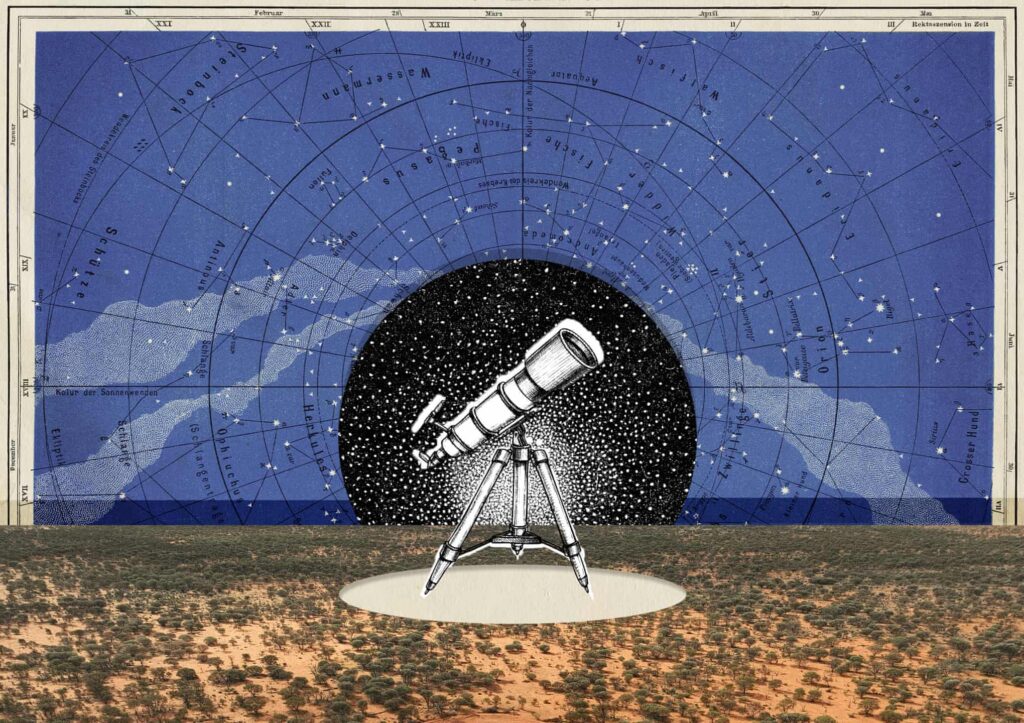
A major international telescope project in outback Western Australia is under scrutiny due to allegations of financial misconduct. The Square Kilometre Array Observatory (SKAO), featuring over 130,000 antennae, is a €2 billion (A$3.6 billion) initiative aimed at mapping the early universe, potentially confirming the existence of extraterrestrial life and offering insights into cosmic evolution. While the project is praised as a significant scientific advancement of the 21st century, troubling claims about its financial management have emerged.
The Australian government’s financial commitment to the SKAO has increased by more than $150 million from 2020 to 2024, exceeding the original budget. This rise in expenditure has been linked to funding shortfalls within the project. In March 2023, as the telescope captured its first images of distant galaxies using only 1% of its capacity, a former senior employee filed a report calling for an investigation into the SKAO’s financial practices.
As an intergovernmental body, the SKAO operates outside the jurisdiction of Australian national laws. Consequently, the complaint was directed to the SKAO’s global chair, Filippo Maria Zerbi, an Italian astrophysicist. The allegations, which had been previously discussed internally, prompted an email from Zerbi in May 2023, confirming that an external independent evaluation of the allegations would be conducted. The email indicated that due to the volume of disclosed information, further investigation was necessary before any conclusions could be made.
The whistleblower has also raised concerns with the Financial Reporting Council in the UK, highlighting a “regulatory blind spot” within the SKAO that purportedly enabled the “systematic deception of 16 sovereign governments.” Established by an international treaty in 2019, the SKAO possesses unique legal status, making it immune from standard legal processes and tax obligations.
The Australian government pledged $387 million to the SKAO over ten years, with $141 million earmarked for the four-year forward estimates. However, recent portfolio budget statements reveal that the total expenditure has reached $475 million between 2021 and 2025, significantly surpassing initial projections. A spokesperson for the Department of Industry, Science and Resources attributed the excess spending to contributions to the SKAO and commitments to local community investments.
Ongoing financial discrepancies between the projected and actual expenses have raised questions about the project’s financial governance. The SKAO’s spokesperson confirmed that the organization was “assisting an independent, external investigation” into the allegations, which include claims of public funds being mismanaged through trading accounts. The whistleblower’s report alleges that at least £12 million (A$25.1 million) was lost due to investments in three money market funds, one of which reportedly lost 45% of its value.
Despite the SKAO’s denial of any financial impropriety, the organization acknowledged the initiation of an investigation into the management of its funds. The spokesperson stated that “no capital loss has been incurred in these investment holdings,” asserting that the money market funds were selected for their low-risk, highly liquid nature.
Concerns about procurement mismanagement have also surfaced, particularly regarding the failure to establish a permanent power supply for the telescope. Currently, the project operates on temporary diesel generators, with a tender for a permanent power plant yet to be awarded. According to the SKAO, a solar-based power solution is expected to be operational by late 2028, but in the interim, expenditure on diesel fuel exceeds $1 million annually.
The project’s funding landscape is further complicated by a €5 million grant from the European Commission, of which €3.4 million is being reclaimed due to ineligible costs. The SKAO’s spokesperson noted that these issues were resolved amicably with the European Commission.
An internal update from July 2023 raised additional alarms regarding changes to the project’s scope and schedule. The document acknowledged a “budget gap” and indicated that certain project elements might need to be deferred to manage financial constraints. The SKAO’s spokesperson emphasized that the project’s scope and schedule are continually reviewed, with oversight from its Council, which includes representatives from member governments.
As the investigation unfolds, the future of the SKAO and its ambitious goals to unlock the mysteries of the universe hangs in the balance, with critical questions surrounding financial accountability and project management needing urgent attention.






